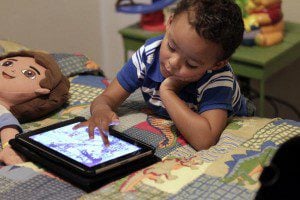
By Maher Budeir
We often hear the phrases, “When I was your age…” or “The youth these days are different” or “It is all because of access to video games and other bad stuff on Facebook,” when we hear our elders speaking of the younger generation. But, is it really so?
Is the current generation really worse off?
Are the media and technology advancements we are witnessing ruining the chances of this generation becoming responsible enough to carry the torch of the American Muslims?
Will they be able to advance the positive impact of Islam in our communities?
Or do we have a case of a lag in parenting and failing to keep up with the changes in media, technology and society?
Are parents being too lazy to manage the change and, instead they blame the media for their inability to adapt and actively adjust their style of parenting?
The Impact of the Media
There is no question that media impacts human thinking, feeling and even behavior. However, this impact can be negative or positive. It is a double-edged sword,and how we use this “tool” can greatly determine the outcome.
For example, one can say using Facebook is a huge waste of time. One can spend hours and hours and accomplish so little and risk being exposed to harmful information. At the same time, one who connects to the right people using the same tool and seeks information that can help and enhance oneself professionally, socially and spiritually can argue that advancement in media has tremendous benefits. In that case, this same tool becomes a positive window for self improvement and development, for better connectivity, for accessing knowledge that simply was not possible 15 years ago.
The Current Times
Is this a generational issue?
Is it just one element of the evolution of our social and technological development?
Is it a “sign of the times?”
Or is it just that change in technology is happening at a much faster pace than we, especially parents, are able to adjust to?
Simply Bad Parenting?
If we take this further, one can argue that while the tools are evolving and technology is changing, parenting has not caught up.
Traditional parenting is still highly regarded in most circles, and people are still impressed when a parent recounts how he or she kept things under control, with no Internet in the house till high school, or that he did not allow his middle-schooler to access a smart phone. In fact, one can say that what that parent is doing is taking the easy way out –pretending we are still in the 1980s — and that we only need to do what our parents did without having to learn to manage the current conditions.
The fact is, new conditions require learning new skills and different approaches and that is hard work because it takes studying, research and consulting. It is much more difficult than simply doing what we watched our parents do.
So How Do I Managed Media with My Kids?
There is no simple answer.
This depends on the ages of the kids, how many and how far apart they are in age, technological literacy of both parents, the home environment, and the level of interaction with their friends, neighbors, and other kids in the community.
With the absence of one set of rules that works for everyone, some general guidelines are in order:
Manage your life by design
Be deliberate when you use media. Have a purpose and a goal and then find the best medium to learn or connect. Teach your family to do the same thing. We should not watch television just because we have nothing else to do. When we decide to use media, there has to be a specific goal. It is not the default activity.
Set up your media hardware for success
Television should not be in the center of the family room, featured as the thing to do once you walk in. At the same time, designate one or two spaces in the house that are accessible and within view to place the main desktop and even little tables in the same room to use laptops. Set up expectations that laptops stay in these spaces, to make sure parents can easily view what younger family members are watching, not to spy on them, but to take the opportunity to interact with them and teach them about the proper ways to use this technology. Make these spaces comfortable and fun, so kids are encouraged to use them in view of the parents. These spaces can be in the living room, “homework room,” family office space, den or even the breakfast room.
Keep an eye on the clock
Before we engage in using media, it is good to predetermine how much time we are going to allow ourselves to do this activity. Let’s plan our time and make sure we do not indulge to the point that the content of the media overcomes our hearts and occupies a huge portion of our time, mind, heart or spirit.
Know your kids‘ media
Check out the content and the rating of what the kids are watching or playing. Take some time and play with them and share the activities. Use the media to become their friend. When you see something out of line, explain the consequences and the risk of engaging in media with negative content.
Teach kids conflict resolution
At a very early age, when kids are watching cartoons, explain to them the right way to manage conflict, to deal with problems and disagreements. Talk to your 3-year-old about not using their hands when they disagree with someone. Teach them proper language and proper techniques to deal with emotions. It is much easier to teach these techniques at an earlier age.
We are living in a time when an incredible store of resources, information and tools is available at our fingertips to access, connect, create and innovate. Finding the right way to manage all that so it works in our favor is essential for our own progress and learning.
This article was originally published at Muslim Matters.












